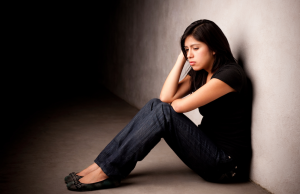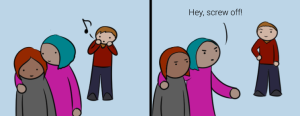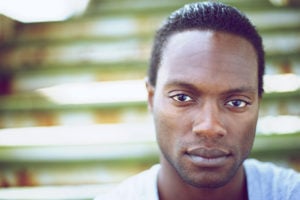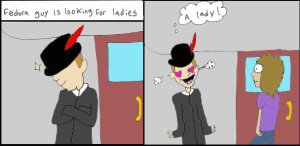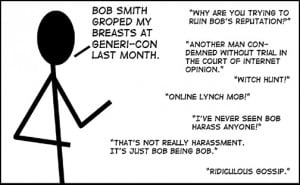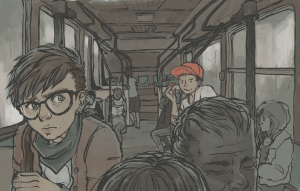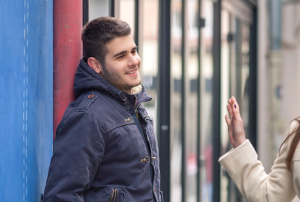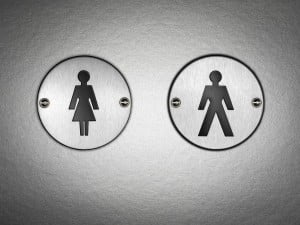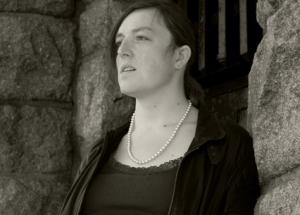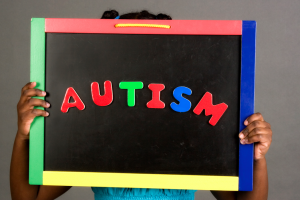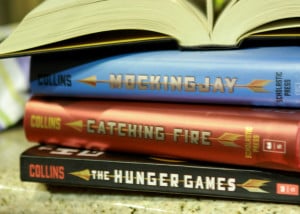
Source: Hunger Times
After seeing The Hunger Games: Mockingjay Part I, I left the theater feeling uneasy.
The movie was a visually and emotionally moving portrayal of political greed, social unrest, the fight against injustice, and the impeding collapse of a brutal and corrupt government, but I still left feeling unsatisfied.
What unsettled me is that I didn’t have to pay 15 dollars for a dystopian experience when we are living in one right now.
Fiction is meant to be an exaggerated portrayal of reality, but there are alarming similarities between what we view on the silver screen and what is happening in our own backyard.
How is it that we are able to understand political strife in thinly veiled allegories of alien races, mutants, and not-so-distant futures, but turn the other cheek to present day where protesters exercising their first amendment right are put under a microscope, belittled, and ignored?
Why do we care about dystopian fiction, but ignore the dysfunction of our real world?
Our Dystopian Reality
There’s one thing that almost every dystopian, fictional world has in common: There’s a corrupt ruling body or a broken justice system.
There is an abuse of power. Marginalized groups live in constant fear and mistrust of those responsible to protect and serve their communities.
And those who rule are not at all representative of the rest of the population. Those in government are only governing for the elite; meanwhile, social welfare and infrastructure crumbles.
A small group of privileged people hold most of the society’s wealth, power, and resources. And in every dystopian/fantasy movie you see, there are the elite trampling all over the poor, downtrodden lower class.
The lower class is often taught early on to accept their position in society and/or assimilate, often within the service and manufacturing industries designed to make life more comfortable for those who can afford it.
Marginalized groups are impoverished, have little to no upward social mobility, and are under constant surveillance of brutal law enforcement.
Does this remind you of anything else?
In the United States, black people are shot by police officers and vigilantes at alarmingly high rates, people of color are incarcerated more and serve longer sentences than white people, there’s rampant homelessness and food insecurity, and there are myriad ways in which our education system fails women and people of color.
With all of this as part of our reality, it’s getting harder to stomach movies where privileged Hollywood actors portray fictionalized and watered down versions of our current plight.
Dystopian fiction closely mirrors our reality in this way. There is always some downtrodden group — which is usually an obvious metaphor for black or indigenous people, or any other ethnic or social group oppressed in the past few decades — that have been resigned to their lower social standing, and those who do dare to speak out against injustice are silenced or punished.
While Americans are protected by our first amendment right to free speech, there are suppression efforts that are effective in silencing our concerns and indignations.
The only difference is that real life suppression is less flashy. But it’s more insidious in nature because it goes undetected and unchallenged by the privileged few.
Where the Similarities End
In the movies, the protagonist finds it hard to mobilize people at first, and may feel shut out, rejected, and silenced. They are scolded for challenging “the way things have always been” and are told not to rock the boat.
This scenario plays out in real life as well; those who challenge the status quo face opposition from the privileged. They may also face criticism and opposition within their movement as well, mostly due to differing views on how things should be handled.
But in the movies, the protagonists are able to overcome these obstacles and mobilize many into action.
This is exposition and clever character building. We’re setting up our heroic protagonist to be seen as determined, tenacious, and a fighter.
But do we idealize these traits in real life activists?
In the movies, underdogs and the downtrodden are more successful in mobilizing others to stand up against injustice, but in reality, the oppressed struggle to have their voices heard.
Why is it that we cheer on these characters leading a revolution, but when protesters are out in the street, you hear things like “violence isn’t the answer” or “what is this going to solve?”
Why do we cheer on Katniss as she takes on the Capitol’s mistreatment of the lower- and middle-class people, but ignore the countless black people in this country who are crying out that our lives matter?
How is it that we can empathize with fictional characters and alien races, but we fail to acknowledge the oppression people are facing within our own society?
Where Privilege Comes In
In the movies, the privileged are seen having extravagant lifestyles, carefree, and largely disconnected from the world and troubles around them.
The same could be said for those who have privilege within our society, be it race, gender, class, and sexual orientation.
The privileged are unaware or apathetic toward the oppression of the marginalized class, often playing the role of the spectator.
This may be the most obvious parallel between dystopian fiction and our society. Those who do not suffer are largely unbothered or are sympathetic, but remain in their secure bubble far, far away from everyone else’s problems.
And that’s (part of) why they can engage in the fictional world, but ignore the real life struggles. Their privilege allows them to disconnect themselves from these issues. The privileged few in our society — like those in the movies — are able to enjoy these movies because it is a sanitary experience.
Those who do not encounter oppression on a daily basis are able to be a part of the marginalized’s struggle without actually engaging or even thinking about it.
Being able to empathize from a distance is a privilege some of us do not have.
To give a current example, there is a kind of detachment from those belonging to privileged groups when it came to understanding the racial tensions in America that are reaching a critical tipping point.
I find that people are upset at those protesting the deaths of Mike Brown and Eric Garner, calling the protests “annoying” and “disruptive.” I even encountered people who are annoyed that Ferguson protestors were blocking traffic on the highways, asking, “What will causing traffic jams accomplish?”
I (not so politely) remind these people that the senseless death of an unarmed people and the lack of justice against those who were responsible is more of a tragedy than the traffic and that sometimes demonstrating our first amendment right is going to be disruptive.
This disconnect between people complaining about something as trivial as traffic when people’s lives are literally at stake is the most unsettling similarity between those who rule in dystopian fiction and those who have privilege in our society.
It is frightening that there are people who condemn protests that are designed to make everyone aware of an issue. Protesting would not be as successful if it weren’t confrontational and upset the comfort of the privileged.
The marginalized people in this society would remain on the peripheral of dominant society’s sight and consciousness if we didn’t take a stand against injustice like our favorite movie idols.
The people I’m bumping heads with over what is shaping up to be a pivotal moment in American history are the same folks who clamor to see movies like The Hunger Games, Divergent, The Purge, or whatever dystopian movie du jour is playing.
Why is that? Why are we able to enjoy movies like these without critically analyzing how they parallel with reality?
How Dystopian Fiction Makes Us Apathetic Toward Real-Life Struggles
White-washed, watered-down, sterilized, and mass-produced dystopian fiction is manufactured in a way that is purely for entertainment.
You can watch a revolution in two hours or less, and you can wash your hands of the whole ordeal, and more often than not, privileged people do the same with current events.
This kind of voyeurism removes the spectator from any feelings of empathy or motivation to act when looking upon people protesting and stirring for change in real life.
With dystopian movies, we can watch at a safe distance and sigh with relief at the end knowing that we do not live in such a society.
So when these issues pop up in our actual, nonfictional lives (i.e.: the Ferguson protests), we’re uneasy. They puncture our secure bubble — we’re no longer being able to just watch from a comfortable distance.
They disrupt our lives; they inconvenience us. We can no longer look on sympathetically and be a passive viewer like we can with dystopian fiction.
What We Can Do
For marginalized groups, we are not far from a dystopia. The nightmare we are living will not be wrapped up in 90 minutes.
This type of fiction cannot be used as a type of escapism for those who are facing inhumane institutional and systematic oppression daily.
There needs to be more awareness and critical thinking when taking in this kind of fiction.
Movies like these are a great way to engage in thoughtful discussions on what life is like in this “post-racial” society and what steps we can take to prevent descending into truly dystopic societies like those portrayed in film.
We need to be able to critique media and see it for what it is — a microcosm of society.
Being ever-mindful and critical of media can suck the fun out of an experience, but we have a duty to be active, aware, and present of the current injustices happening.
This isn’t to say that you cannot enjoy dystopian fiction, but we cannot detach ourselves from what is going on around us. After all, dystopian fiction is meant to be a forewarning of what would be to come if things didn’t change.
We need to be just as engaged in the real stories of marginalized groups in our society as we are to those on the silver screen.
It needs to be understood that marginalized groups in this country cannot stand by idly and watch like privileged people do because we have a lot more at stake.
***
We all must join in the fight to uplift marginalized groups and transcend institutional and systematic oppressions within our society that we are chained to.
There can be no passive viewing in this. We must root for the real heroic leaders and revolutionaries as much as (if not more than) the fictional ones.
[do_widget id=”text-101″]
Jenika McCrayer is a Contributing Writer for Everyday Feminism. A Virginia native with a BA in Women and Gender Studies from The College of William and Mary, she is currently pursuing an MA in the same field. This AmeriCorps alumna is passionate about community service and strives for a better understanding of how to mobilize marginalized populations through service and activism. Jenika also enjoys good books, bad horror films, naps, and the beach. Follow her on Twitter @JenikaMc. Read her articles here.
Search our 3000+ articles!
Read our articles about:
Our online racial justice training
Used by hundreds of universities, non-profits, and businesses.
Click to learn more





